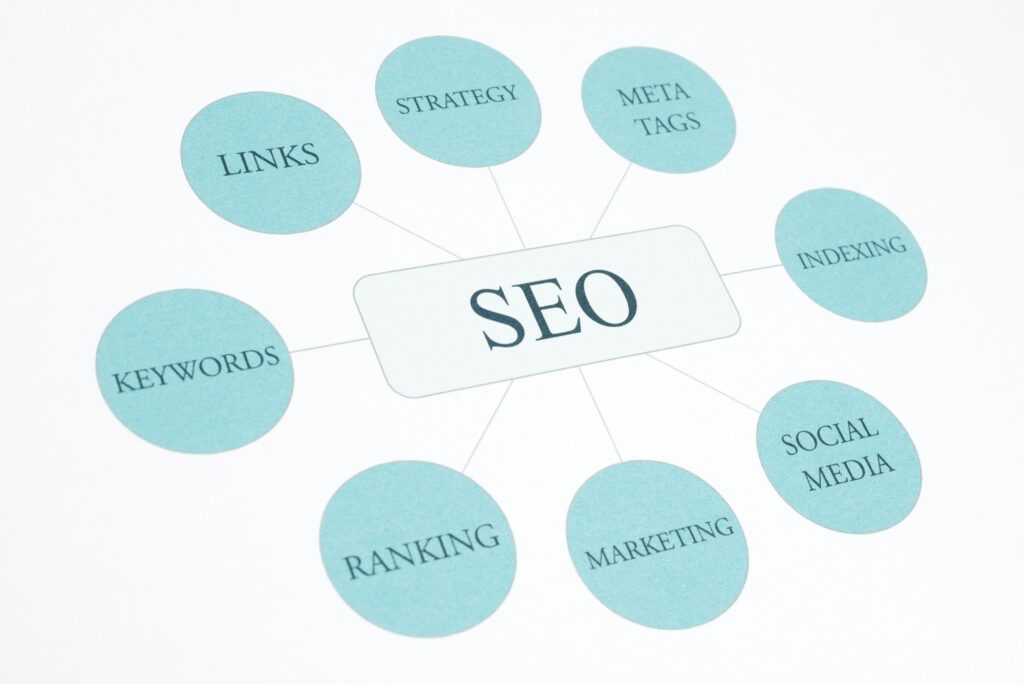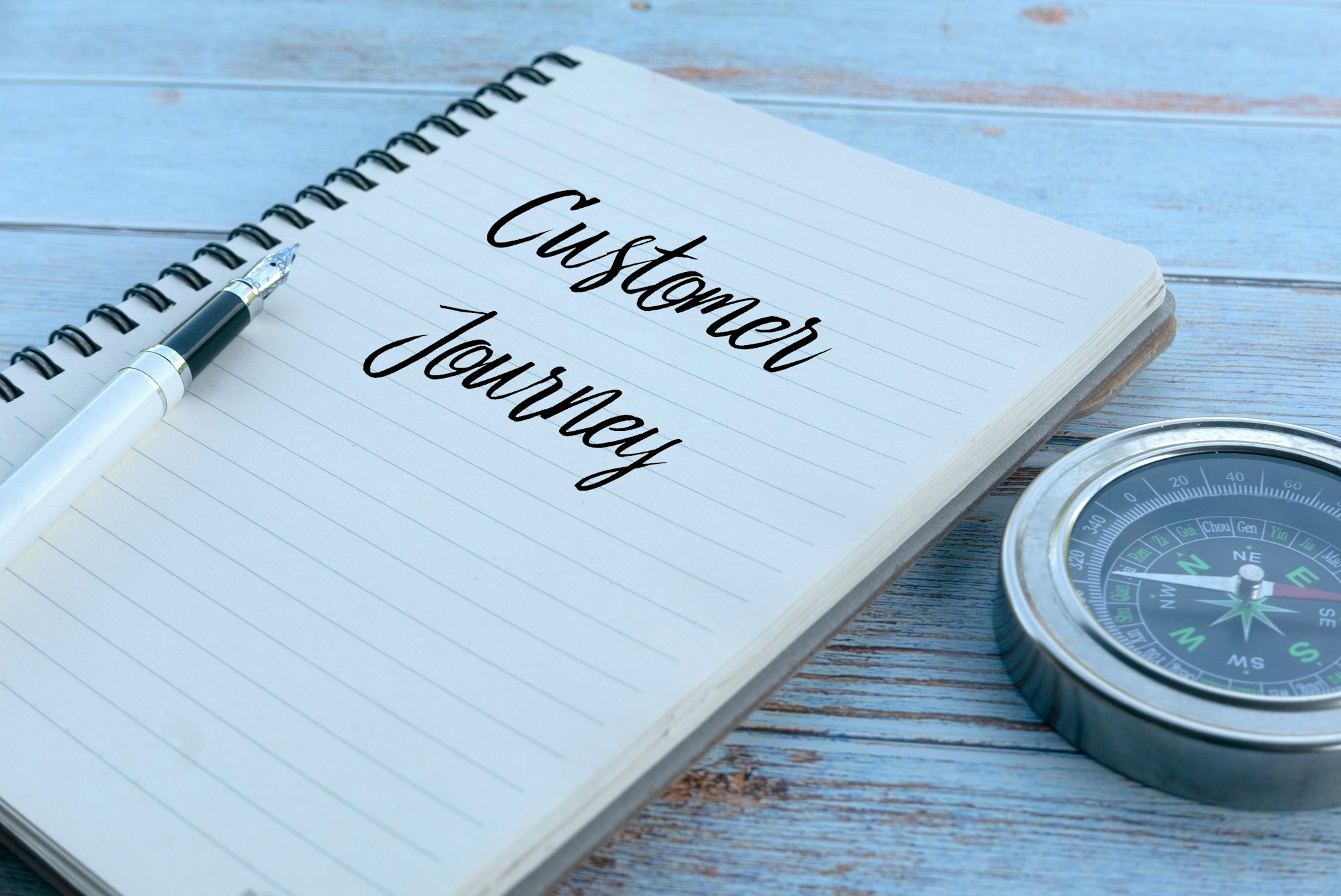Branding | Marketing | Advertising
How Does Local Search Marketing Work?
By: Steven Lockhart
Recent Blog
Want to use an Digital Markating
Lorem ipsum dolor sit amet, consectetur adipiscing elit. Ut elit tellus.

Conquer Your Local Market: A Comprehensive Guide to Local SEO
People increasingly turn to online searches to find businesses in their vicinity, local SEO has become the cornerstone of success for any local business. Whether you run a cozy coffee shop, a bustling family-owned restaurant, or a reliable plumbing service, a strong local SEO strategy can make all the difference in attracting new customers and driving sustainable growth.
Imagine this: a potential customer in your neighborhood, craving a delicious pizza, pulls out their phone and searches for “best pizza near me.” If your pizzeria doesn’t rank high in local search results, you’ve missed out on a valuable opportunity to showcase your offerings and potentially convert them into a loyal customer.
This scenario highlights the critical role local SEO plays in bridging the gap between your business and potential customers within your local area. By implementing effective local SEO strategies, you can ensure that your business appears prominently in local search results, leading to increased visibility, foot traffic, and ultimately, increased revenue.
Why Local SEO Matters: A Spotlight on Visibility, Foot Traffic, and Customer Acquisition
A staggering 97% of consumers search online to find local businesses, local SEO has become an essential ingredient for any local business seeking to thrive.
Gone are the days of relying solely on traditional advertising methods like print ads or word-of-mouth. Modern consumers actively research online before making purchasing decisions, and local search engines play a crucial role in their journey.
Here’s how local SEO empowers your business and why it’s more important than ever:
1. Shining a Spotlight on Your Business:
Local SEO acts as a powerful tool to increase your online visibility within your local market. By optimizing your website and online presence for local search, you ensure your business appears prominently in search results when people search for terms relevant to your offerings. This translates to a wider audience reach, as potential customers actively looking for businesses like yours will easily discover you online.
2. Driving Foot Traffic to Your Doorstep:
Imagine a scenario where a potential customer searches for “best bakery near me” and your bakery pops up at the top of the local search results. Intrigued by your online presence, they decide to visit your store to explore your offerings. This scenario exemplifies the power of local SEO in driving foot traffic to your physical location. By ranking high in local searches, you entice potential customers within your vicinity to visit your business, leading to increased sales and engagement.
3. Converting Online Searches into Loyal Customers:
The beauty of local SEO lies not just in attracting potential customers but also in converting their online searches into actual customers. When a local search query leads them to your business, you’ve already captured their attention and sparked their interest. By presenting a well-optimized website, positive online reviews, and engaging content, you can nurture that interest and convince them to choose your business over your competitors. Local SEO, therefore, acts as a catalyst for customer acquisition, helping you build a loyal customer base within your local community.


Building Your Local SEO Foundation:
Once you’ve grasped the importance of local SEO and its potential to supercharge your local business. It’s time to roll up your sleeves and build a solid foundation for your local SEO efforts. Let’s delve into the essential first steps:
Claim and Optimize Your Google My Business (GMB) Listing:
Think of your Google My Business (GMB) listing as your online storefront – it’s the first impression potential customers get of your business in local searches. Claiming and optimizing your GMB listing is crucial for local SEO success. Here’s how:
- Claim your listing: Head over to Google My Business: https://business.google.com/ and follow the prompts to claim your business if it isn’t already listed.
- Fill out all information accurately: Ensure your business name, address, phone number, website URL, and category are accurate and consistent across all platforms. This is crucial for NAP consistency (Name, Address, Phone Number), which search engines consider a ranking factor.
- Optimize your profile: Upload high-quality photos, write a compelling business description highlighting your unique selling points, and add relevant keywords naturally.
- Manage Reviews & Build Online Reputation:
Positive online reviews from satisfied customers are goldmines for local businesses. Encourage customers to leave reviews on your GMB listing and respond promptly to both positive and negative reviews, demonstrating professionalism and building trust. Check out Google’s guide to managing reviews: [invalid URL removed] for helpful tips.
Utilizing GMB Posts & Features:
GMB offers various features to engage with your audience and showcase your offerings. Regularly post updates, promotions, and events to keep your profile fresh and informative. Utilize features like “Q&A” to answer customer questions directly on your listing.
Local Citations & Business Listings:
Think of online directories like Yelp, Bing Places, and local industry-specific listings as additional digital storefronts. Getting your business listed on these platforms with consistent and accurate NAP information strengthens your local SEO presence and increases your chances of being discovered by potential customers searching online. Explore resources like Moz Local: https://moz.com/local/ or Yext: https://www.yext.com/ to simplify the process of managing your citations across multiple platforms.
Local Keyword Research & Targeting:
Understanding the keywords local customers use to search for businesses like yours is vital for local SEO. Conduct keyword research to identify relevant local keywords (e.g., “best plumber in [your city]”) and integrate them naturally into your website content, GMB listing, and social media posts. This increases your website’s relevance for local searches and improves your chances of ranking higher.
By implementing these foundational steps, you’ll be well on your way to establishing a strong local SEO presence and attracting more customers through online searches. Remember, consistency and ongoing effort are key to maintaining your local SEO success in the ever-evolving digital landscape.

Local Content Marketing Strategies
Local businesses need to think beyond just having a website. To truly stand out in their communities, they need to engage with their local audience through content marketing. This involves creating content that resonates with people who live in the area and are searching for businesses like yours. Here are some key strategies to consider:
Local Events & News Coverage:
People are naturally interested in what’s happening in their own backyard. Highlighting local events in your content, whether it’s a farmers market, a charity run, or a live music performance, showcases your awareness of the community and positions you as a local player. You can even contribute to local news websites by offering your expertise on relevant topics related to your industry. This not only positions you as a thought leader but also helps you reach a wider local audience.
Engaging with Your Community (Hyperlocal Content):
Think beyond just promoting your own products and services. Create content that addresses the specific interests and needs of your local community. This could involve writing blog posts about local history, recommending kid-friendly activities, or sharing tips on navigating public transportation. By focusing on hyperlocal content, you not only showcase your understanding of the community but also build trust and goodwill with potential customers. You can find inspiration for hyperlocal content by checking out community forums on platforms like Nextdoor: https://nextdoor.com/ or local Facebook groups.
Optimizing Content for Voice Search Queries:
With the rise of voice assistants like Siri and Alexa, more and more people are using voice search to find businesses in their area. Optimizing your content for voice search queries ensures you reach these potential customers. This involves using natural language in your writing, focusing on long-tail keywords (e.g., “best pizza delivery near me”), and answering frequently asked questions (FAQs) related to your industry. Here are some tips for optimizing your content for voice search from Google: [invalid URL removed]:
Social Media Marketing for Local Businesses:
Social media platforms are powerful tools for connecting with local audiences. Regularly posting engaging content on platforms like Facebook and Instagram allows you to share updates, showcase your work, and interact with potential customers. Additionally, consider partnering with local influencers who have a strong following in your area. This can help you reach a wider audience and leverage the influencer’s credibility to build trust in your business.
Mobile Optimization & Marketing:
In today’s mobile-first world, it’s crucial to ensure your website is optimized for mobile devices. This means your website should load quickly, be easy to navigate, and have a clear call to action for mobile users. Additionally, you can explore mobile-specific marketing strategies like location-based advertising or SMS marketing to reach customers on their smartphones. Remember, people are often searching for local businesses on their phones while on the go, so ensuring a smooth mobile experience is crucial.

Advanced Local SEO Techniques: Mastering Your Local Market
Once you’ve established a strong foundation for your local SEO strategy, you can delve into advanced techniques to further refine your approach and maximize its impact. These techniques cater to businesses seeking to dominate their local market and stand out from the competition.
1. Local Lead Generation & Conversion Optimization:
Beyond attracting potential customers, local SEO can also help you convert them into qualified leads. This involves optimizing your website and online presence to capture leads through contact forms, email signups, or special offers. Additionally, focusing on conversion rate optimization (CRO) ensures that visitors who find your website through local searches are more likely to take the desired action, such as making a purchase or scheduling an appointment.
Resources:
- Google Search: Search for “local lead generation tips” or “conversion rate optimization for local businesses” to find helpful resources.
- Bing Search: Explore articles like “5 Ways to Generate Leads from Your Local Business Website” or “Boosting Conversions for Local Businesses: A Beginner’s Guide.”
2. Local Search Analytics & Measuring Success:
Tracking and analyzing your local SEO results is crucial to gauge the effectiveness of your efforts and identify areas for improvement. Tools like Google My Business Insights and local search analytics platforms can help you monitor key metrics like website traffic, user engagement, and search ranking. By analyzing this data, you can refine your strategy, allocate resources effectively, and measure the overall success of your local SEO efforts.
3. Local Paid Advertising Options (PPC for Local Businesses):
While organic local SEO is essential, local pay-per-click (PPC) advertising can be a powerful tool to supplement your efforts and reach a wider audience. By strategically running targeted ads on search engines and other platforms, you can reach potential customers actively searching for specific products or services in your local area.
Resources:
- Yahoo Small Business: Read the article “Local PPC Advertising: A Beginner’s Guide” to learn more about leveraging PPC for local businesses.
4. Local Link Building & Schema Markup:
Building high-quality backlinks from other relevant websites within your local area can significantly improve your local SEO ranking. These backlinks act as votes of confidence from other websites and signal to search engines that your business is credible and trustworthy. Additionally, implementing schema markup helps search engines understand your business information more accurately, which can further improve your visibility in search results.
5. Local Public Relations & Community Outreach:
Building strong relationships with the local community can significantly benefit your local SEO efforts. Engaging in local public relations (PR) activities such as participating in community events, sponsoring local charities, or partnering with local businesses can enhance your brand awareness and build goodwill. This positive local reputation can indirectly boost your online presence and search ranking.
6. Local Area Marketing Strategies (City-Specific Campaigns):
If you operate in a specific city or region, developing targeted marketing campaigns for that area can further enhance your local SEO strategy. This might involve creating location-specific landing pages, tailoring content to address local interests, or running targeted local ads. By focusing your efforts on specific neighborhoods or cities, you can reach local audiences more effectively and establish yourself as a trusted brand within your local community.
Putting It All Together: Building Your Local SEO Roadmap
Now that you’ve grasped the fundamental elements of local SEO, it’s time to craft a personalized strategy tailored to your specific business and goals. Here are three crucial steps to consider:
1. Developing a Local SEO Strategy & Setting Goals:
Think of your local SEO strategy as a roadmap guiding your efforts towards achieving specific objectives. Start by evaluating your current online presence, including your website, Google My Business listing, and online reviews. This initial assessment helps identify your strengths and weaknesses, forming the foundation for your strategy.
Next, define clear and measurable goals. Do you aim to increase website traffic by 20% in the next quarter? Or perhaps you want to see a 15% rise in foot traffic in the next six months? Setting SMART goals (Specific, Measurable, Achievable, Relevant, and Time-bound) ensures your strategy is focused and trackable. You can find helpful resources for setting SMART goals on websites like the SMART Goals Resource Center: [invalid URL removed] and the Project Management Institute: [invalid URL removed].
2. Measuring Local Marketing ROI & Tracking Performance:
Once your strategy is in place, tracking your progress and measuring your return on investment (ROI) is essential. Local SEO tools like Google Search Console and Google My Business Insights offer valuable data to monitor your website traffic, search ranking, engagement metrics, and conversion rates. Analyzing this data allows you to identify areas of success and areas for improvement, enabling you to fine-tune your strategy for optimal results.
3. Local Marketing Budget Allocation & Resource Management:
Implementing a successful local SEO strategy often requires investing resources, whether it’s time, money, or both. Allocate a realistic portion of your marketing budget towards local SEO initiatives, considering factors like your business size, industry, and competition level.
Remember, effective resource management is key. If you lack in-house expertise, consider partnering with a local SEO agency to leverage their experience and expertise.


Local SEO & Staying Ahead of the Curve
Ignoring local SEO is like having a storefront with the lights off and the door locked. It might exist, but no one will find it. Local SEO helps you dominate your digital neighborhood, making sure potential customers see your business when they search online. This translates to more website traffic, foot traffic, and ultimately, more sales.
However, the digital landscape is constantly evolving, and what works today might not work tomorrow. Staying ahead of the curve requires dedication to continuous learning and adaptation. Regularly monitor your local SEO performance, track industry trends, and consider seeking assistance from local marketing professionals who specialize in staying up-to-date on the latest strategies and best practices.
By embracing local SEO and remaining adaptable, you position your business for long-term success in the ever-changing digital landscape.
Local Marketing Services & Solutions Available:
Many agencies and consultants specialize in local SEO and can provide valuable assistance to businesses of all sizes. Consider exploring the services offered by local marketing professionals to discover solutions tailored to your specific needs and goals.
Remember, investing in local SEO is an investment in the future of your business.
#LocalSEO #DigitalMarketing #SmallBusiness

Seeking Guidance on Your SEO Journey: Expert Resources and Collaboration
The path to SEO mastery is not always a solitary journey. Seek inspiration and guidance from industry experts like Steven Lockhart (https://linkedin.com/in/4stevenlockhart), a nationally recognized digital marketing expert who can provide valuable insights and strategies to help businesses navigate the ever-changing world of digital marketing. Additionally, consider attending industry conferences, webinars, and workshops to stay up-to-date on the latest trends.
Add Your Heading Text Here
- Moz Beginner’s Guide to SEO: https://moz.com/beginners-guide-to-seo/quick-start-guide – A comprehensive guide covering various SEO fundamentals.
- Search Engine Land: https://searchengineland.com/ – Industry news, insights, and articles on SEO and digital marketing.
- Backlinko: https://backlinko.com/ – Actionable SEO advice and data-driven insights from Brian Dean.
- Ahrefs Blog: https://ahrefs.com/blog/ – Advanced SEO strategies and technical insights from the Ahrefs team.
- Semrush Blog: https://www.semrush.com/blog/ – SEO trends, industry updates, and actionable tips from Semrush.
- Google Search Central Blog: https://developers.google.com/search – Official updates and announcements from Google regarding search algorithms and best practices.
- Yoast SEO Blog: https://yoast.com/seo-blog/ – WordPress-specific SEO advice and tutorials from Yoast.
- Neil Patel Blog: https://neilpatel.com/ – Actionable SEO and digital marketing strategies from Neil Patel.
- HubSpot Blog: https://blog.hubspot.com/ – Inbound marketing and SEO resources from HubSpot.
- The Beginner’s Guide to SEO from Moz: https://moz.com/beginners-guide-to-seo/quick-start-guide – A free, in-depth course covering SEO basics from Moz Academy.
- SEO for Beginners: The Complete Guide from Ahrefs: https://ahrefs.com/seo – A comprehensive guide to SEO fundamentals from Ahrefs.
- The Ultimate Guide to SEO by Backlinko: https://backlinko.com/seo-basics-for-beginners – A comprehensive and visual guide to SEO from Brian Dean.
- The Beginner’s Guide to Learning SEO from Search Engine Land: https://searchengineland.com/ – Tips and resources for beginners interested in learning SEO.
- Technical SEO Guide for Beginners from Semrush: https://www.semrush.com/blog/technical-seo/ – An introduction to technical SEO from Semrush.
- On-Page SEO Guide: The Complete On-Page Optimization Checklist from Backlinko: https://backlinko.com/on-page-seo – A comprehensive checklist for on-page SEO optimization.
- The Link Building Guide: How to Build High-Quality Backlinks from Backlinko: https://backlinko.com/link-building – A strategic guide to building high-quality backlinks.
- The Local SEO Guide: How to Rank Higher in Local Search Results from Search Engine Land: https://searchengineland.com/library/seo/local – Strategies for improving local SEO rankings.
- Mobile SEO Guide: The Complete Optimization Checklist from Backlinko: https://backlinko.com/mobile-seo-guide – A checklist for optimizing your website for mobile devices.
- Ecommerce SEO Guide: The Complete Strategy for Ranking Higher in Product Searches from Search Engine Land: https://searchengineland.com/ – Ecommerce-specific SEO strategies.
- SEO Auditing: A Complete Guide from Ahrefs: https://ahrefs.com/blog/seo-audit/ – Learn how to conduct an SEO audit of your website.




